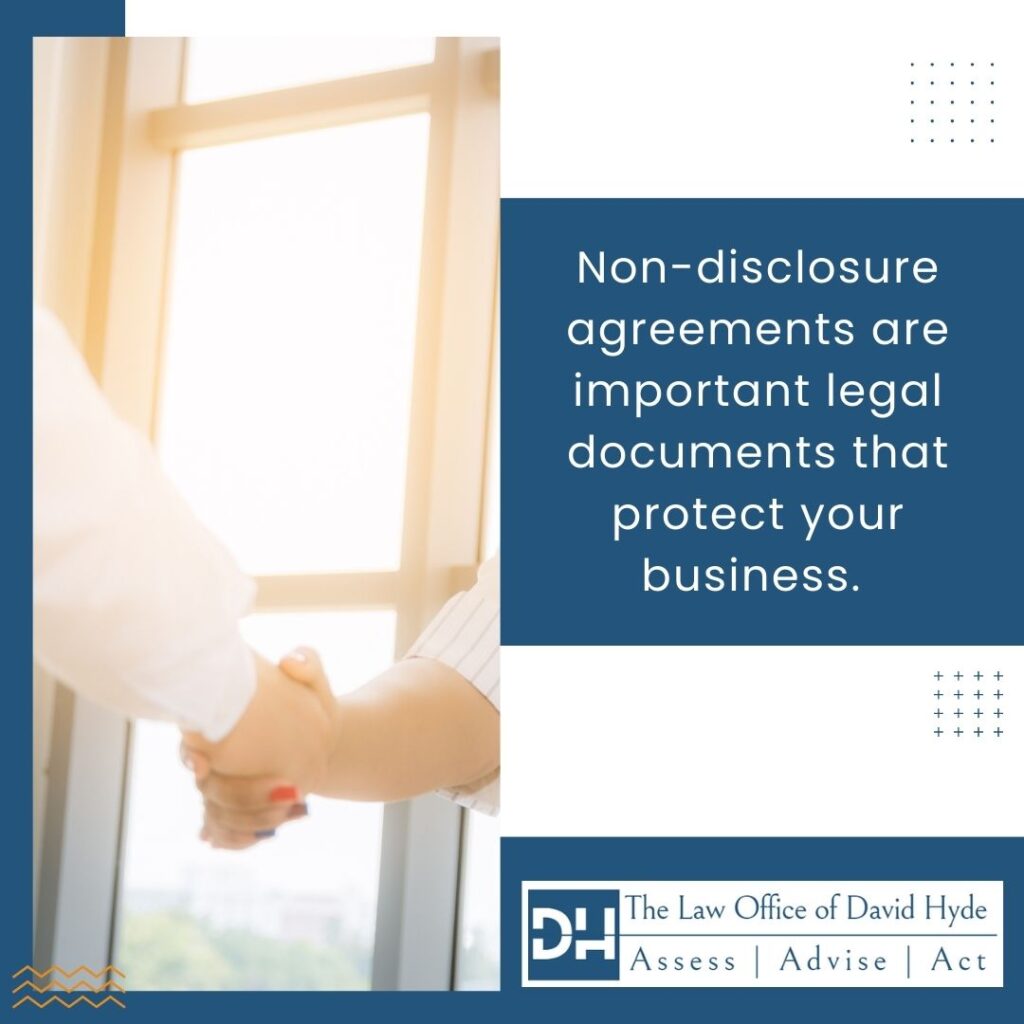Non-disclosure agreements are formal contracts that protect your business’ confidential information from being shared with third parties. They’re also called confidentiality agreements or NDAs. Because it is a legally binding document, it is important that you have a business lawyer Evanston Illinois craft the agreement to ensure it is done correctly and to prevent future legal issues from arising. Call 312-210-9598 today for a consultation with The Law Office of David Hyde.
A non-disclosure agreement (NDA) is a legal contract between two parties that prevents the disclosure of confidential information. They are generally used in situations where parties wish to or need to share confidential or proprietary information about their products, services, finances and/or trade secrets. The purpose of an NDA is to protect sensitive data and proprietary information, such as trade secrets, from being shared with third parties without permission from the disclosing party.
When do you need a Non-Disclosure Agreement?
You need a non-disclosure agreement when you want to protect your ideas, clients’ information, and financial information. A typical NDA may include:
- Confidentiality obligations – The parties agree not to disclose any confidential information they receive from each other during or after termination of their relationship.
- Security measures – The parties must take reasonable steps to protect all confidential data against unauthorized access.
- Exceptions – There are some exceptions where disclosure would not be considered an infringement on the confidentiality clause (such as a court order or legal proceeding).
Non-disclosure agreements are an important legal framework used to protect sensitive and confidential information from being made available by the recipient of that information. Companies and startups use these documents to ensure that their good ideas won’t be stolen by people they are working with or doing business with.
AN NDA can help you protect:
- Proprietary information such as products, services, and finances.
- The reputation of your business by preventing competition from using your trade secrets against you in the marketplace.
- Time spent developing ideas by ensuring they aren’t stolen by competitors or third parties who might try to capitalize on your work without paying any royalties.


Intellectual property
When you sign a confidentiality agreement, you’re asking someone to keep your information private. This includes any information that is considered “confidential” or “proprietary.” Confidentiality agreements protect your intellectual property (IP) from being disclosed without your permission. This may include software code, trade secrets, financial information, business plans, and marketing plans.
You can also use confidential non-disclosure agreements (NDA) when sharing sensitive data with third parties such as vendors or contractors who need access to certain parts of your project but aren’t part of the core team working on it directly with you every day. Outside contractors should not be allowed to use your confidential information without permission; they should also not be allowed to share it with others or use it for their own benefit.
In Illinois there has been a shaky history with non-disclosure agreements and courts have found, in specific instances, that they are unenforceable. Because your proprietary information and intellectual property deserves to be protected, it’s important that the agreement be constructed properly. David Hyde, business lawyer Evanston Illinois, has the experience and passion to make sure your business and financial future are protected.
Contact David Hyde to talk to an experienced business lawyer Evanston Illinois
Non-disclosure agreements are an important tool for protecting your business. If you’re looking to hire outside contractors or consultants or share information with employees or investors, it’s important that they sign an NDA. This will help ensure that any proprietary information they come across during their work remains confidential between the parties involved. Contact our business lawyer Evanston Illinois for a consultation.
